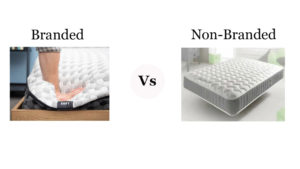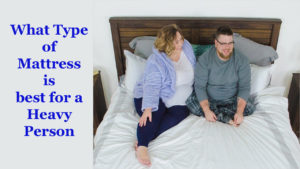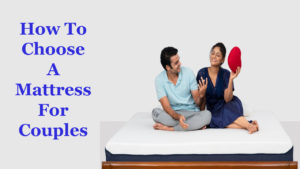Sleep is one of the most necessities of man. Lack of sleep causes many health issues, decreased life satisfaction, and decreased happiness. We run around all day, busy with our education or career. We come back home tired and annoyed; the least we could get is a decent, restful sleep. But the problem is you are not able to sleep. Why? The major reason is a change in the sleep cycle, or it could be as simple as having a really bad mattress.
Mattress plays a very major role in sleep. It cannot be very clear concerning what mattress you should choose. Let us assure you that it doesn’t get better than a Japanese-style Futon mattress. Futon mattresses are simple, comfortable, and multipurpose. They are the ideal mattress for all purposes. You don’t need to spend thousands on a regular foam or latex mattress. A futon mattress is bound to deliver more benefits.
Contents
1. Key Factors to Consider Before Buying A Futon Mattress
Before you decide to purchase a futon mattress, here are some key points that you should consider to make the best out of your purchase:
- Aesthetics: Coil-filled futon mattresses are comfortable but lose their shape over time, i.e., they start to sag. But foam-filled futon mattresses, which are a bit firmer, tend to hold their shape for longer periods.
- Comfort: You must now inspect the various types of futon mattresses available with the retailer if you wish to prioritize comfort because the level of comfort varies based on mattress types (and the materials used to make them).
- Versatility: Futon mattresses are generally chosen by many for their versatility, i.e., they can be used as a couch, sit on or lie against, and a bed (to sleep on). But coil filled futon mattresses only serve as bed-mattresses.
- Size: It is important to determine the size of the futon mattress you need, whether single or double or queen or king-sized. This entirely depends on the side of your room.
- Purpose: Determine the purpose of your futon mattress. If it’s for the occasional guest, you don’t need to look at the top quality ones. But if it’s for you to use regularly, don’t hesitate to spend some extra dough on better quality.
- Durability: To determine the durability of your futon mattress, check the following: warranty period, quality of materials used, and special instructions for care.
- Price: Futon mattresses are generally budget-friendly. Hence even cheaper ones have good quality.
- Firmness: Determine the level of firmness you require based on your health condition (do you require orthopedic mattresses?) and your sleeping position. If you sleep on your side, then opt for softer futon mattresses. But if you sleep on your back or your tummy, then choose firmer futon mattresses.
2. What Are The Types Of Futon Mattresses?
There are various types of Futon Mattresses to choose from. But you must base your choice on the key points mentioned above (and not on discounts).
- Foam Futon Mattress (comfortable, durable, moderate back support)
- Spring Futon Mattress (better comfort, poor versatility)
- Wool filled Futon Mattress (Best suited for cooler climates or locations)
- Cotton Futon Mattress (budget-friendly, firm, less durable)
- Foam & Polyester Futon Mattress (soft, medium-firm, more durable)
- Foam/Cotton Hybrid Futon Mattress (comfortable, best back support, durable)
- Innerspring Coil Futon Mattress (best in class comfort, poor versatility)
3. How Do You Make A Futon Mattress More Comfortable?
There are two ways to make a futon mattress more comfortable. Firstly, one can try making their futon mattress comfortable using a comforter such as a mattress topper or a feather bed (if you are looking for softness). Secondly, if you require more firm back support, you can place something firm underneath your futon mattress, like a bed, wooden bed slats, or an air mattress.
4. When Was the Futon Mattress First Introduced?
The futon mattress is a traditional Japanese mattress that was first commercialized in the United States of America during the 1970s. The futon sofa cum mattress was invented by William
Brouwer in 1982. It was popularized after World War II and first started as a cottage industry.
5. The lifespan of a Futon
Usually, a futon mattress lasts between 5 to 10 years. But you can never say for sure as a futon mattress’s lifespan depends on the type of materials used in it, the quality of the materials, and the mattress’s purpose; if a futon mattress is occasionally used while housing guests, it can last for ten years and even more.
6. Pros and Cons of a Futon
Pros:
- Child friendly
- Comfortable
- Takes up less space
- Easily transported
- Highly versatile (can be used as a mattress and a couch)
- Better back support
- Budget-friendly
- Convenient
- Aesthetic and minimalist
- Cost-effective
- Easy to clean and care for
Cons:
- Less durable
- Heavy
- Lose shape over time
7. FAQ’s
1. How thick should a futon mattress be?
The optimum amount of thickness that a futon mattress should have is 8 inches or more; this guarantees the best in class futon experience.
2. How long do futon mattresses last?
Generally, futon mattresses last between 5 years to 10 years. But if they are used occasionally, they can last for ten years and even more.
3. Can I use a memory foam mattress on a futon?
Yes, it is possible to use a memory foam mattress on a futon, especially if you seek comfort or feel cold and require more heat retention.
4. What size is a full futon mattress?
A full futon mattress measures 54×75″.
5. What is the difference between a futon mattress and a regular mattress?
A futon mattress is a Japanese-style mattress that is easier to transport, reduces space, and is more lightweight than a regular mattress. At the same time, a regular mattress is more sturdy than a futon mattress.


